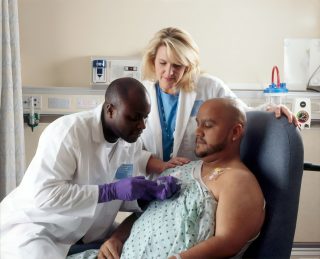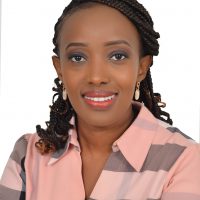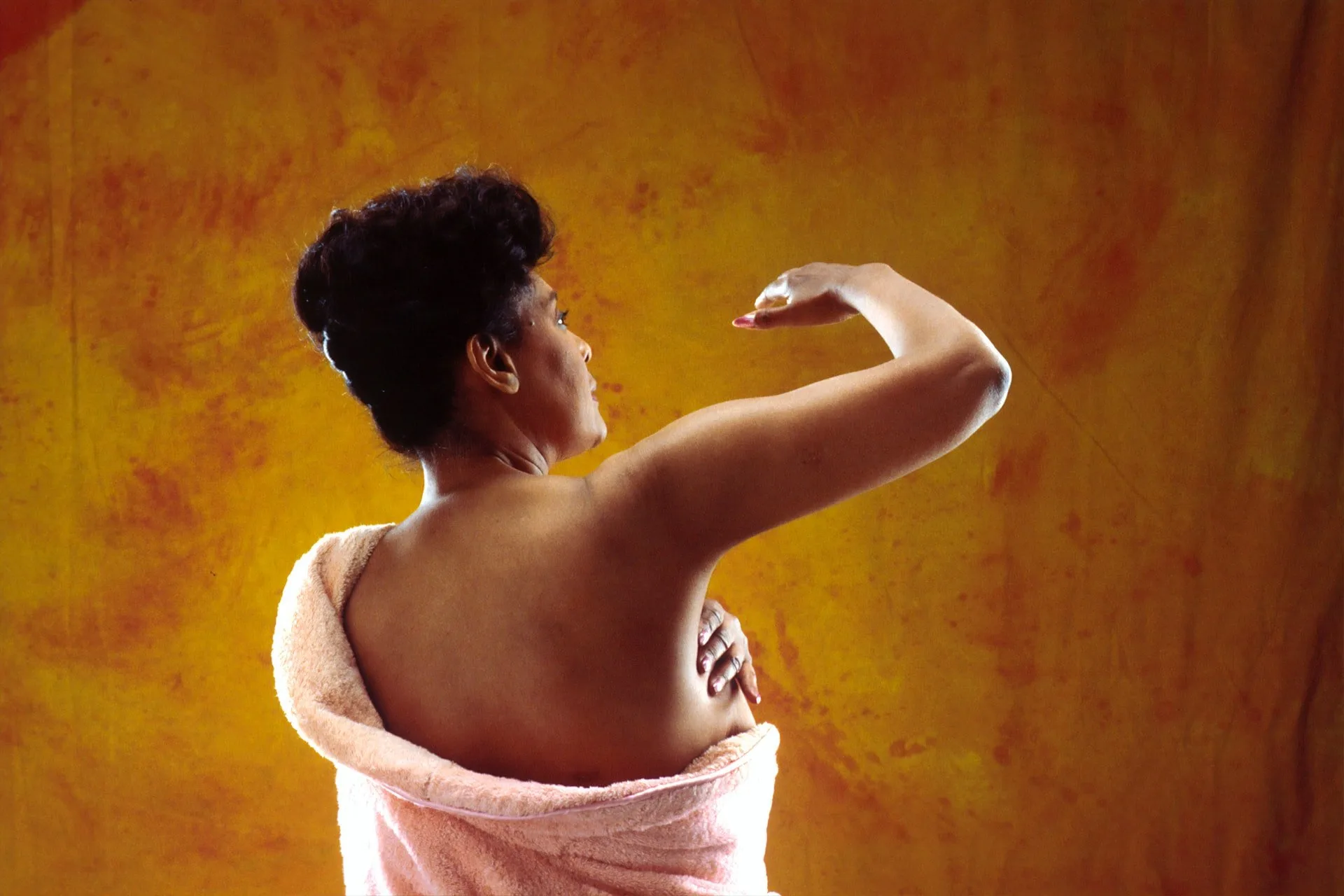4 February is World Cancer Day and 2022’s World Cancer day theme is “Close the care gap”. Initiated by the Union for International Cancer Control, World Cancer Day aims to unite the cancer community and reduce the global cancer burden. Dr Ida Mbuthia, Medical and Scientific Affairs Lead SSA, Roche Diagnostics explains.
Approximately 8.2 million people worldwide die from cancer each year, and the numbers are consistently rising. Half of these deaths are considered premature. Disparities in prevention, diagnosis, treatment and palliative care are growing and World Cancer Day is an opportunity to raise cancer awareness in the media, public consciousness and in global health and development circles.1
The non-communicable “pandemic”
Cancer is the second leading cause of death globally and accounted for an estimated one in six deaths, in 2018 2 . And the cancer burden exerts tremendous physical, emotional and financial strain on individuals, families, communities and health systems.
Awareness and action are key factors in managing the global cancer burden, as at least one-third of cancers are preventable. Access to care and early diagnostics are vital. Poor access to resources means that 70% of cancer deaths occur in low-to-middle income countries. But early detection, appropriate strategies for prevention and treatment could save millions of lives. 3
Types of cancers
Cancer tumours are divided into three groups. Benign tumours are slow growing and rarely life threatening. They are usually contained within one part of the body and are made up of cells resembling the normal healthy cells. Complications arise when they become too large and put pressure on other organs such as the brain or lungs. 3
Faster growing malignant tumours, however, spread and destroy neighbouring tissue. Their cells break off from the primary tumour and metastasise through the body. They continue to divide and grow resulting in metastatic cancer. 3
Precancerous abnormal cells are cells that are likely to develop into cancer. 3
There are five main types of cancer, classified according to the nature of the cell they originate from:
- Carcinoma – A cancer that originates in the epithelial cells and invades the surrounding tissues and organs. They metastasise to the lymph nodes and other areas of the body.
- Sarcoma – A malignant tumour of the bone or soft tissue.
- Lymphoma and Myeloma – these begin in the cells of the immune system. Lymphoma is a cancer of the lymphatic system, making the entire body vulnerable. Myeloma originates in the white blood cell that produces antibodies to help fight infection.
- Leukaemia – Cancer of the white blood cells and bone marrow, the tissue that forms blood cells.
- Brain and spinal cord cancers. 3
Causes of cancer
Most cancers are the result of exposure to several factors – some external and some internal. One-third of cancer cases can be prevented by reducing behavioural and dietary risks3. Alcohol, excess weight, diets high in red meats, processed meats, salted

Photo by National Cancer Institute on Unsplash
foods and low in fruits and vegetables impact cancer risks. 3
Tobacco smoke contains at least 80 different cancer-causing substances that pass into the bloodstream and are transported throughout the body. Manmade sources of radiation can cause cancer and are a risk for people exposed to cancer-causing substances because of the work that they do. 3
Viruses that cause changes in cells make them more likely to become cancerous. 70% of cervical cancers are caused by Human Papillomavirus (HPV) infections, while liver cancer can be caused by the Hepatitis B and C virus. 3
Regular physical activity reduces excess body fat and the cancer risks associated with this and being physically active can help reduce the risks of developing cancers.3
Some risk factors are not as easy to modify. Age plays a role as a longer life means more exposure to carcinogens. Genetic mutations can also alter how a cell behaves, making it more likely to be cancerous. And certain people are born with a genetic predisposition that makes the disease more likely. Weakened immune systems also increase cancer risk. Those with HIV or AIDS, organ transplant recipients or those with medical conditions that reduce immunity are more vulnerable to cancer.3
The African cancer burden
The African continent suffers from a shortage of medical equipment, research resources and epidemiological expertise. Late diagnosis greatly reduces the possibilities of curative treatment, and in sub-Saharan Africa, those vulnerable to being diagnosed with advanced disease include many socially disadvantaged people with poor cancer awareness.Even with many patients experiencing symptoms and seeking help, it is common to long delays to diagnosis.4
To improve survival rates, sub-Saharan African countries need to boost programmes to ensure the early diagnosis of cancer, in tandem with improvements to efficient, timely access to appropriate high-quality treatment. An accelerated referral system to diagnosis needs to be strengthened and strategies to improve cancer education and awareness among patients and health professionals should be intensified.4
Awareness is key
The old cliché, “Knowledge is power” is most fitting here. It is of the utmost importance that patients are acutely aware of the symptoms of cancer so that early diagnosis can lead to proper care. Different people can have different symptoms. And some people do not have any signs or symptoms at all, making cancer harder to detect on the surface. 5
Here are some possible warning signs of cancer. Contact your healthcare professional if you find any of the following:
- Unusual lumps or swelling
- Coughing, breathlessness or difficulty swallowing
- Changes in bowel habits
- Unexplained weight loss
- Fatigue
- New moles or visible changes to a mole
- Unusual breast changes
- Appetite loss
- A sore or ulcer that won’t heal
- Heavy night sweats 3
It is important to note that these symptoms can also occur with other conditions that are not cancer. 5
Closing the gap of the cancer burden
Even though we live in a time of incredible advancements in cancer prevention, diagnosis and treatment, many are denied basic care. This is the equity gap that needs to be addressed. Barriers obstructing cancer care include income, education, geographical location and discrimination. In healthcare, inequality refers to the uneven distribution of resources, whereas inequity refers to unjust, avoidable differences in care or outcomes.
Closing the care gap isn’t about providing equal resources, but about giving everyone what they need to bring them up to the same level. 6
At Roche Diagnostics, we believe in collaborative solutions that can improve the lives of patients throughout the African continent. Whether its cancer, infectious diseases or other serious health threats, the quest for better solutions to healthcare’s greatest challenges starts with and depends on diagnostics. If we commit to tackling the burden of cancer together, I truly believe we can be instrumental in curbing the cancer burden, the “non-communicable pandemic” in the long-term. 7
About the author
Dr IDA MBUTHIA MBChB, MPH, GCSRT (Harvard Medical School)
 Dr Mbuthia holds an MBChB from the University of Nairobi and a Master’s degree in Public health specializing in Health Promotion from Moi University. She is a Harvard alumnus from the Global Clinical Scholars research-training program with over 15 years’ experience in Clinical medicine, Healthcare management, Medical Affairs and Clinical research expertise in the Pharmaceutical and Diagnostics industry. Dr Mbuthia is the Medical and Scientific Affairs Lead SSA for Roche Diagnostics, a position she has held for the past one year and is based in Nairobi Kenya. Global health policy, non-communicable diseases and evidence generation for Africa are among key areas of interest for her.
Dr Mbuthia holds an MBChB from the University of Nairobi and a Master’s degree in Public health specializing in Health Promotion from Moi University. She is a Harvard alumnus from the Global Clinical Scholars research-training program with over 15 years’ experience in Clinical medicine, Healthcare management, Medical Affairs and Clinical research expertise in the Pharmaceutical and Diagnostics industry. Dr Mbuthia is the Medical and Scientific Affairs Lead SSA for Roche Diagnostics, a position she has held for the past one year and is based in Nairobi Kenya. Global health policy, non-communicable diseases and evidence generation for Africa are among key areas of interest for her.
References
- https://www.gov.za/
WorldCancerDay2022 - https://www.who.int/health-
topics/cancer#tab=tab_1 - https://www.worldcancerday.
org/understanding-cancer - https://www.iarc.who.int/wp-
content/uploads/2021/03/IARC_ Evidence_Summary_Brief_1.pdf - https://www.cdc.gov/cancer/
breast/basic_info/symptoms.htm - https://www.worldcancerday.
org/about/2022-2024-world- cancer-day-campaign - https://www.roche.com/about/
business/diagnostics/value-of- diagnostics.htm



![women [longevity live]](https://longevitylive.com/wp-content/uploads/2020/01/photo-of-women-walking-down-the-street-1116984-100x100.jpg)










